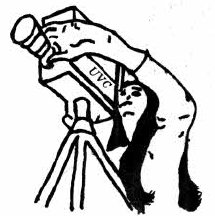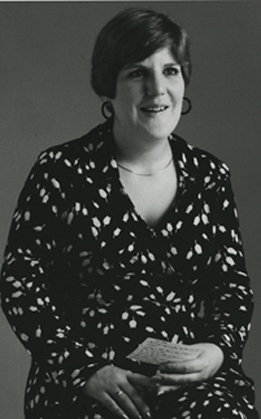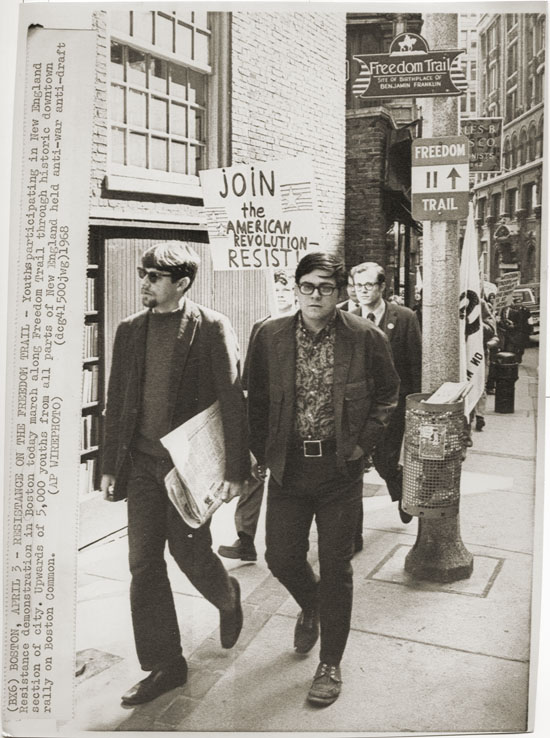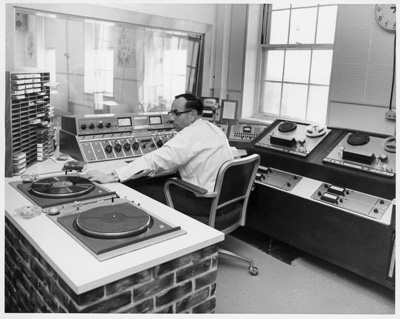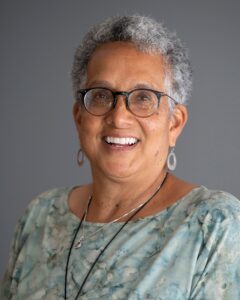Union Video Center TV Collection
Founded in 1976, originally under the name of the Student Video Project, UMass’ Union Video Center was planned as early as 1972 and quickly gained popularity alongside the general rise of public access television in the late 70s. The UVC’s mission has been consistent throughout its existence, emphasizing their ability to offer students the opportunity to work in/with video production in a structured and organized manner that, at the time, was not generally accessible. Through the UVC’s workshops, students are taught the various aspects of the video production process, surrounding areas such as cinematography, lighting, editing, screenwriting and more. Through these UVC workshops the organization created a community through media made by UMass students. The variety of programs created through UVC are extremely diverse and include original programs like UMass This Week, the UMass Sports Weekly Show, a comedy sketch show known as Yak Back, dating shows and others, as well as documenting hundreds of events on campus. The organization was shepherded in its early years by early founders/directors such as Mark Chesak, David Skillicorn, Irene Starr, Mark Gunning, and Dennis Martin, in addition to many student staff and volunteers.
UVC began with an investment of $30-$40,000 of half inch reel to reel EIAJ video equipment. They were, and still are, one of the few student agencies that receives funding from the Student Government Association, as opposed to other student run organizations that have a budget allocated for them. This difference in funding is specifically garnered for student agencies that are seen as integral to strengthening the student experience at UMass.
Throughout the UVC’s extensive history, they have covered an array of important UMass and community events such as concerts/festivals, distinguished lectures, campus protests, independent student films, sporting events and much more. This collection contains over 3,000 recordings and are on an array of different video formats such as Betamax, VHS, SVHS, EIAJ, CDs, DVDs, VHSC, miniDV, and eventually to digital files and a YouTube channel. Some highlights from the collection include substantial coverage of artists who have performed at UMass including the Sun Ra Orchestra, Archie Shepp, Jonathan Richman, Black Flag, The Wailers, Dinosaur Jr., Max Roach, Sweet Honey in the Rock and countless others. Other highlights include sizable coverage of UMass’ diverse community events such as the Asian American Student Association’s Asian night celebrations. Furthermore, UVC’s vast coverage of activism and political speakers on campus is documented through lectures by Noam Chomsky and James Baldwin as well as student protests against the invasion of Grenada, the US presence in El Salvador, and Iraq invasion teach-ins. Beyond the events that UVC documented, the collection also sheds light on the inner workings of the organization through correspondence, financial documents , and training material. The collection also includes extensive budget planning, yearly reports of the organization’s goals and accomplishments, video workshop teaching materials, guidelines/manuals, UVC alumni networks, and fliers.


